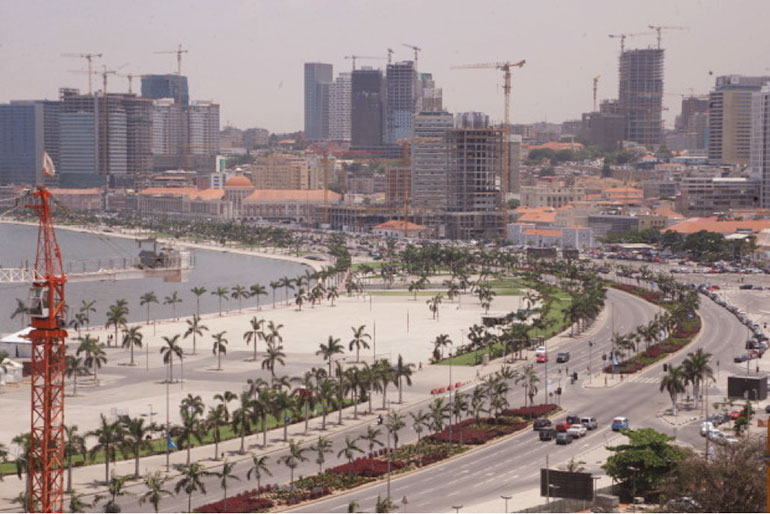
World-class city making in Luanda
On the 24 February, Dr Sylvia Croese, an academic affiliated to ACC, and based in the Department of Sociology at the University of Cape Town gave a fascinating seminar on how world-class cities narratives emerge in Africa, with a particular focus on the Bay of Luanda in Angola. Addressing a group of around 40 students, staff, and public officials, she argued that this case study troubles the way in which world-class cities are usually thought about. The desire to produce world-class cities has been criticised for focusing urban development on attracting foreign direct investment, often at the expense of the interests of urban residents, and particularly the urban poor. Croese’s research revealed that although the Bay of Luanda development fits with a world-class cities narrative on the surface, when looking at the complexity, a slightly different picture emerges.
According to Croese, ‘in an era that has been marked by ‘Africa’s rise’, concomitant efforts towards the building of world-class African cities have generated growing research interest over the past years. However, often these efforts are seen as uncritically adopted or externally imposed imitations of global/world city models. This paper aims to take world-class city making in Luanda seriously by analyzing its dynamics on its own terms, thereby moving beyond accounts that either romanticize or demonize this process’.
She makes three arguments: firstly, ‘that while discourses underpinning world-class city making may reflect external or economic drivers, such as a desire to attract international investment, the case of Luanda shows that this practice can be equally or even more strongly driven by internal or political objectives, such as the pursuit of national legitimacy and domestic stability’; secondly, ‘that world-class city making in Africa does not necessarily have to be externally imposed, managed or financed, but that it can also be ‘home-grown’ and led by national rather than city governments, especially in resource-rich and authoritarian states like Angola’; and ‘that while the mainstream world-class city literature tends to focus on the futuristic nature of world-class city aesthetics, the redevelopment of the Bay of Luanda shows how efforts to revive modernist colonial architecture may equally underpin world-class city making. The study of world-class city making should then not only consider ‘introspective’ vs ‘extrospective’ politics but also ‘retrospective’ rationales or the ways in which utopia and nostalgia intersect across time and space’.
Respondent and visiting German scholar, Dr Wenz commented on how this kind of research nuances global discourses and adds important empirical data for growing Southern theory.
For more information, please contact Rike Sitas at Mistra Urban Futures Cape Town Local Interaction Platform